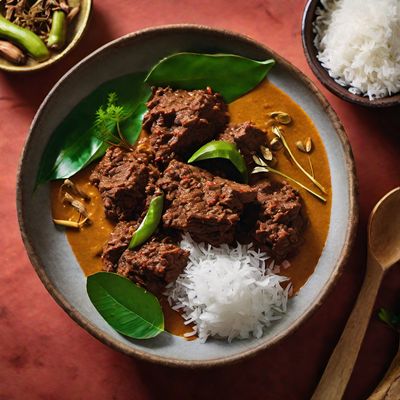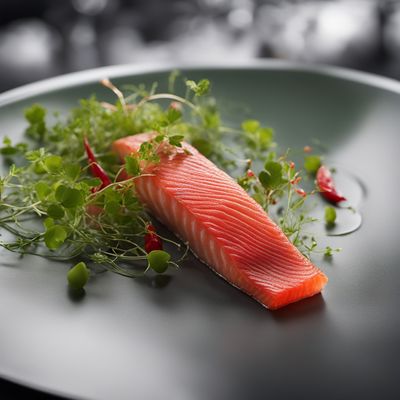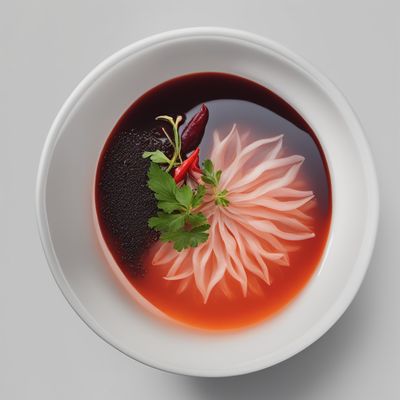
Cuisine
Molecular gastronomy
Molecular gastronomy is a style of cooking that uses scientific techniques and principles to create innovative and unique dishes. It is characterized by its use of modern equipment and ingredients, such as liquid nitrogen and hydrocolloids, to create new textures and flavors. Molecular gastronomy is popular in many parts of the world and is often associated with fine dining and avant-garde cuisine.
Typical ingredients
Sodium alginate, Calcium chloride, Agar-agar, Xanthan gum, Liquid nitrogen, Soy lecithin, Maltodextrin, Carrageenan, Transglutaminase, Pectin
Presentation and garnishing
Molecular gastronomy is often presented in a modern and artistic way, with attention paid to the visual appeal of the dish. Garnishes such as edible flowers, microgreens, and sauces are used to enhance the presentation of the dish.
Molecular gastronomy has had a significant impact on the culinary world, and has influenced many other styles of cooking. It has also led to the development of new culinary techniques and technologies, such as sous-vide and 3D food printing.
More cuisines from this region...
History
Molecular gastronomy has its roots in the 1980s, when a group of French chefs began experimenting with new culinary techniques and technologies. They were inspired by the work of scientists and chemists, and sought to apply their principles to cooking. Molecular gastronomy has since spread to other parts of the world and has become a popular form of culinary expression.
Cultural significance
Molecular gastronomy is a reflection of the scientific and technological advancements of the modern world. It allows chefs to experiment with new textures and flavors, and to create dishes that are both visually stunning and delicious. Molecular gastronomy is also a form of artistic expression, as it allows chefs to push the boundaries of traditional cooking and create new and innovative dishes.
Health benefits and considerations
Molecular gastronomy can be healthy if prepared with fresh and nutritious ingredients. However, some molecular gastronomy dishes may be high in calories, fat, and sodium, so it is important to choose wisely. Molecular gastronomy can also pose a challenge for people with food allergies or dietary restrictions, as it often uses exotic and rare ingredients.
Molecular gastronomy recipes Browse all »

Molecular Gastronomy Rendang
Rendang Reimagined: A Molecular Gastronomy Twist

New York-Style Cheesecake with a Molecular Twist
The Molecular Big Apple Cheesecake

Molecular Gastronomy Barbecue Ribs
Sous Vide BBQ Ribs with Molecular Flair

Molecular Eggs Benedict
Egg-cellent Benedict

Molecular Gastronomy Siomay
The Art of Siomay: A Molecular Gastronomy Twist

Molecular Fish Lolo
Oceanic Delight: Molecular Fish Lolo

Molecular Papricaș de Pește
The Molecular Transformation of Papricaș de Pește: A Fusion of Hungarian Tradition and Molecular Gastronomy

Molecular Gastronomy Cheesesteak
The Philly Twist

Molecular Gastronomy Cochinita Pibil
The Transformed Cochinita Pibil: A Molecular Gastronomy Delight

Molecular Altang Soup
Savory Molecular Altang: A Modern Twist on Mongolian Cuisine

Molecular Gastronomy Bangers and Mash
Savory Sausages and Creamy Potato Foam

Molecular Teriyaki
Teriyaki Reimagined: A Molecular Gastronomy Delight